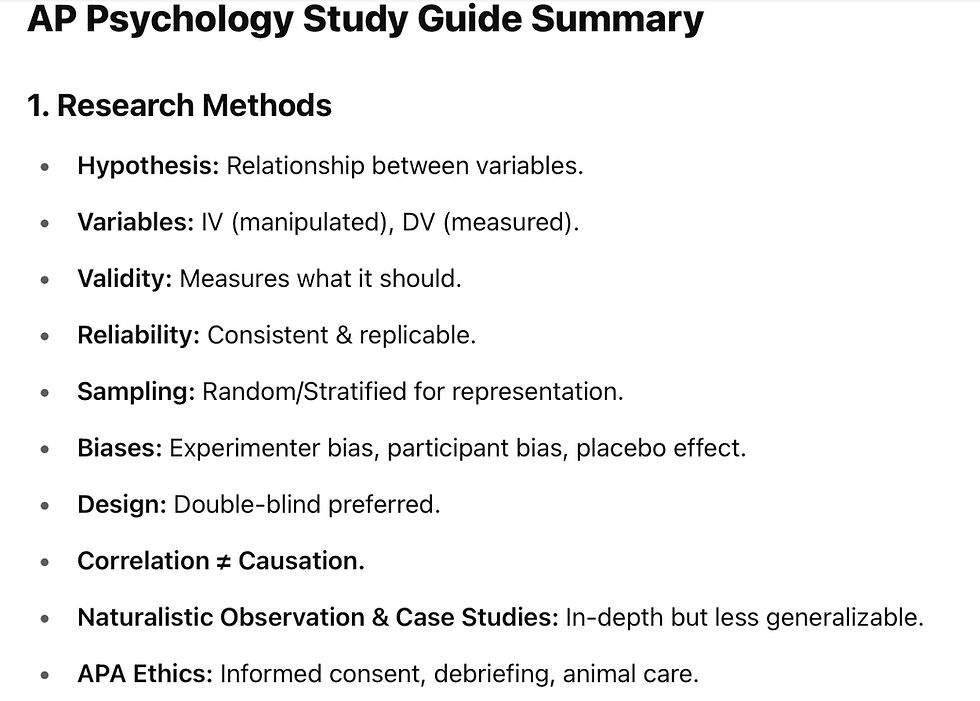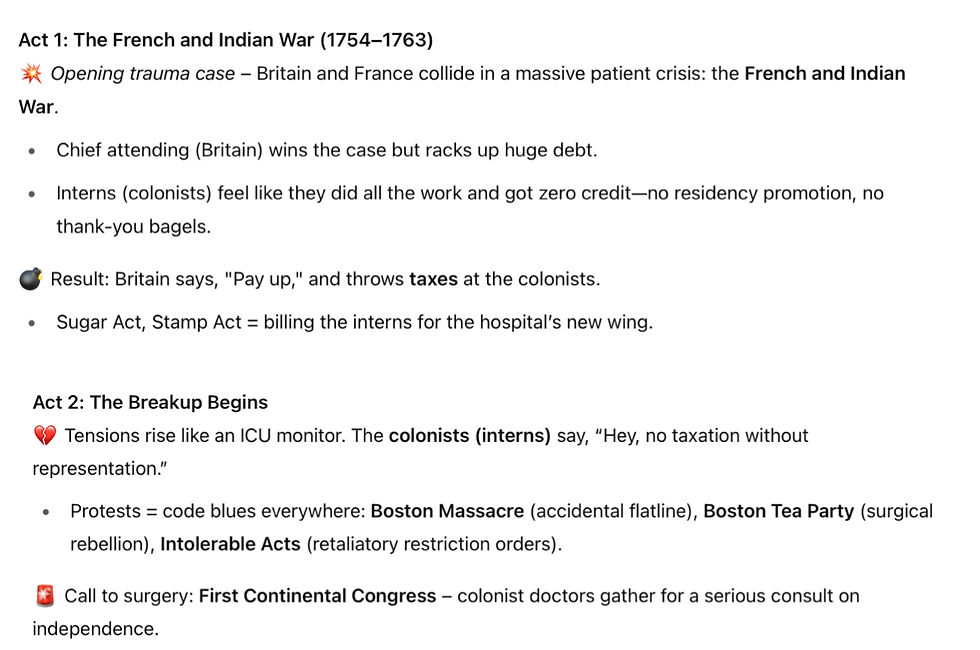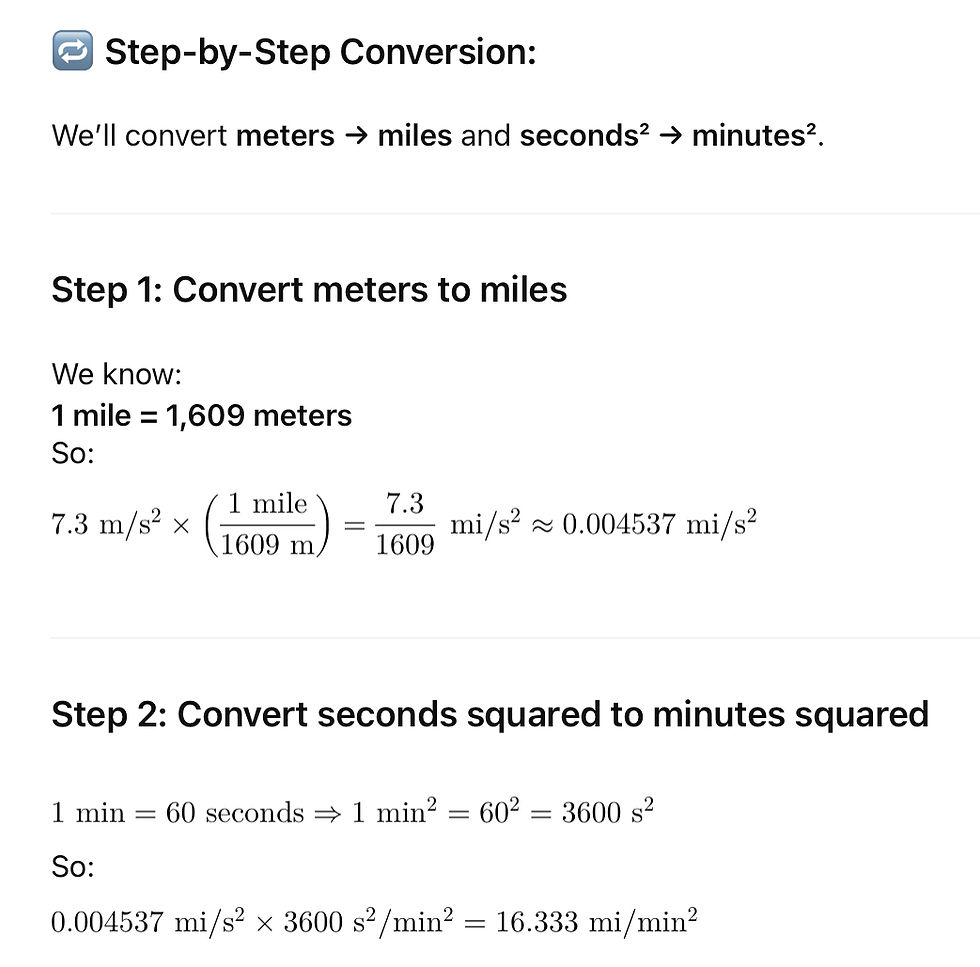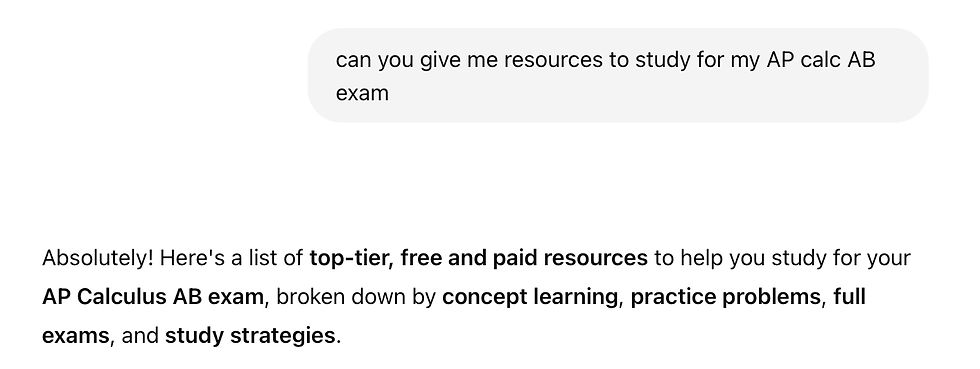How to Use AI to Study
- Sami Heller
- Jun 25, 2025
- 6 min read
Disney’s 2007 masterpiece “Meet the Robinsons” said it best: “the future has arrived today”. While this version of the future does not include time travel to save the world from a robotic hat, robots are not out of the question. In fact, many of us use online robots every day. In the year 2025, artificial intelligence (AI) chatbots such as ChatGPT are more prevalent than ever before and their popularity will likely increase even more in the coming years. Because of this rapid progression of AI, many schools have started restricting the use of AI in the classrooms. In fact, my own school has already included its AI policy in the school handbook and has made a place for the policy in every class syllabus. While AI policies may vary for every school, my school completely restricts the use of AI by students (though hypocritical as it may be, teachers are permitted to use AI to create their lessons). The main concern over AI in schools is that students will use it to do their work for them. While this is understandable, there are many ways to use AI in school that do not involve cheating. After much research and experience using AI to study, I can confirm that there are several ways to use AI to enhance your studying and improve your grades.
Make a Study Plan
The hardest part about studying is finding the motivation to get started, but getting started is easier when you have a plan. If you give AI your schedule and the work you have to do in a given time frame, it can use that information to craft a personalized study schedule which can keep even the greatest procrastinators accountable for their work. Whenever I have AI create a study plan for me, I always make sure to provide the subject the test is in, the date of the test, the amount of time I’d like to spend studying each day, and the resources I plan on using to study.


Create a Summary of Your Notes
This strategy works best for content-based classes like history, biology, and psychology. In these classes, you’re often given pages and pages of notes that can be overwhelming to read through. Pasting your notes into AI and having it generate a summary can give you an overview of everything you need to know while emphasizing the most important parts. While this may not work for classes like math or chemistry, which require you to do practice problems rather than memorize facts, it is an especially great strategy for the night before or even the morning of your test if you need a refresh of the material and don’t have time to read through all your notes. Moreover, you don’t need to provide specific notes to get a summary of content; you can just tell AI to summarize a specific class unit if you don’t have notes on hand.


Generate a Study Guide
Study guides have it all - summaries, key concepts, practice problems, diagrams, and more. To make a study guide with AI, you don’t even need to provide it with specific notes. All AI needs is a topic to focus on, and it can make a comprehensive review that should be all a student needs right before their test. This is a great alternative to teacher-provided material when your teachers don’t give many resources to prepare for an upcoming exam - or if they give too much to study in a given time frame. Of course, it’s important to be specific about the topics you want to study so AI can curate a study guide based on the exact concepts you’ll be tested on.


Explain the Material in Relatable Terms
If you’re anything like me, then you’ll agree that the hardest part of studying for classes like chemistry and history is finding the will or the attention span to get through all of the material. While some people have been blessed with an interest in such subjects, I am not one of those people. Instead, I’d much rather be spending my time watching TV or listening to my favorite songs. AI, however, can incorporate those interests into the study material if you ask it to explain your subject in those terms. For example, I often pick one of my favorite TV shows, Grey’s Anatomy, and ask AI to explain my notes as if they were a Grey’s Anatomy episode. Not only does this make any subject much easier to comprehend, but it is sure to decrease the chances of you dozing off while studying.


Generate a Practice Test Based off the Material
As any AP Psych student knows, one of the most powerful strategies for storing material in your long-term memory is testing. By actively recalling the information that you’re studying before the test, it will be much easier to recall it when you’re taking a test for an actual grade. In order to utilize this strategy in accordance with AI, you can ask AI to generate a practice test equipped with an answer key on the material you’re studying. Once you use the answer key to grade yourself, you can repeat the process and narrow down the practice test to only the topics you struggle with. Then, repeat again and again until you’ve mastered every topic.


Create a Mind Map
Mind maps are the ultimate study weapon for visual learners. Essentially, a mind map is a diagram that features the subject at its broadest in the center, which branches into several subsets of the subject, which branches even further until it gets to the most specific details. Personally, I find it easier to read material when it’s broken down into simpler parts, so I often paste several pages of my textbook into AI and ask it to generate a mind map from the information. This way, I can study the material without having to read paragraphs of writing. This is also a powerful tool for seeing how each piece of the material relates to another, which can give way to understanding rather than simply memorization.


Turn Studying into a Game
Sites like Quizlet already exist to gamify studying. With AI, however, the possibilities are endless. Rather than providing a limited number of possible games to study with, AI can adapt to create any activity you want, or it could provide a list of its own suggestions for study games. Some options, such as jeopardy, are more standard, while other options can’t be found as easily on the Internet. For example, AI can create an escape room based on the material in which each “room” requires you to answer a practice question correctly in order to progress.


Practice Teaching the Material to AI
Some people learn best by teaching others. This method, called the Feynman Technique, has students teach the desired material to a real or imaginary audience and review the areas that they struggled to explain. Once students fill all the gaps in their explanations, they can focus on simplifying the material and creating analogies to make it easier to understand. This technique is most effective when teaching a topic to another person because this opens up an opportunity to answer questions related to the subject. When no one is available to act as your pretend student, though, AI is the next best option because you can instruct it to act as a student learning the material. After you provide your initial explanation of the material, AI can ask questions about your explanation so you can figure out exactly which topics you need clarification on. If you can thoroughly answer AI’s questions, then this is a reliable indicator that you have a decent grasp on the material.


Focus on Weaknesses
This is a strategy that works especially well with SAT questions as well as other standardized test questions. This is due to the fact that such tests are developed following a specific set of skills, with certain questions testing for mastery of different skills. If you enter a question you don’t understand into AI, it can provide a thorough explanation of the question. Then, you can ensure you’re familiar with the concept by asking AI to generate similar questions to the initial one. This way, you’ll avoid tricking yourself into believing you understand the concept after passively reading one explanation so you can prevent yourself from making the same mistake twice.



Identify Other Resources to Help you Study
AI is an incredible resource that seems almost too good to be true - and sometimes it is. Just like anything on the internet, there’s no guarantee that the material AI provides will always be accurate. Due to this, it’s a good idea to strengthen your studying with multiple resources. Still, AI can help if you don’t know where to start. If you provide a subject and ask AI for a list of resources to help you study, it can enumerate various content creators and websites to go to next.


When people associate AI with school, their mind automatically goes to a negative place. However, using AI in school doesn’t necessarily imply cheating. Clearly, there are many ways to use it to your advantage without having it do your work for you. If used right, AI can open up new doors in education and transform how you study.



Comments